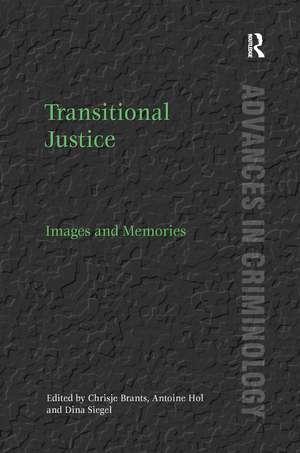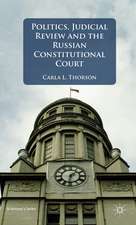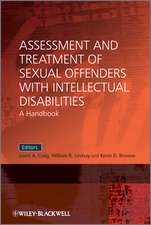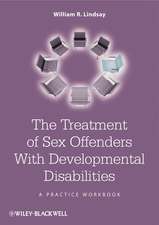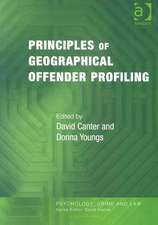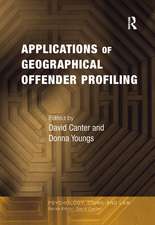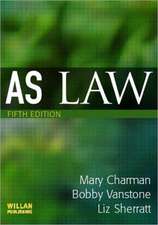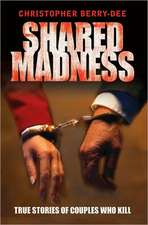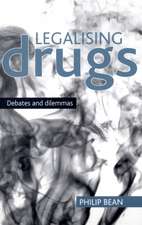Transitional Justice: Images and Memories: New Advances in Crime and Social Harm
Editat de Chrisje Brants, Antoine Hol, Dina Siegelen Limba Engleză Paperback – 11 noi 2016
This book goes further than providing a legal analysis of the effectiveness of transitional justice and presents a wider perspective. It is a critical appraisal of the different dimensions of the process of transitional justice that affects the imagery and constructions of past experiences and perceptions of conflict. Examining hidden histories of atrocities, public trials and memorialization, processes and rituals, artistic expressions and contradictory perceptions of past conflicts, the book constructs what transitional justice and the imagery involved can mean for a better understanding of the processes of justice, truth and reconciliation.
In transcending the legal, although by no means denying the significance of law, the book also represents a multidisciplinary, holistic approach to justice and includes contributions from criminal and international lawyers, cultural anthropologists, criminologists, political scientists and historians
| Toate formatele și edițiile | Preț | Express |
|---|---|---|
| Paperback (1) | 469.34 lei 6-8 săpt. | |
| Taylor & Francis – 11 noi 2016 | 469.34 lei 6-8 săpt. | |
| Hardback (1) | 767.88 lei 6-8 săpt. | |
| Taylor & Francis – 11 mar 2013 | 767.88 lei 6-8 săpt. |
Din seria New Advances in Crime and Social Harm
-
 Preț: 326.78 lei
Preț: 326.78 lei -
 Preț: 469.34 lei
Preț: 469.34 lei -
 Preț: 389.38 lei
Preț: 389.38 lei - 17%
 Preț: 184.81 lei
Preț: 184.81 lei - 14%
 Preț: 312.43 lei
Preț: 312.43 lei - 24%
 Preț: 321.21 lei
Preț: 321.21 lei - 31%
 Preț: 767.38 lei
Preț: 767.38 lei - 22%
 Preț: 238.29 lei
Preț: 238.29 lei -
 Preț: 489.26 lei
Preț: 489.26 lei -
 Preț: 489.26 lei
Preț: 489.26 lei -
 Preț: 461.66 lei
Preț: 461.66 lei -
 Preț: 469.34 lei
Preț: 469.34 lei - 18%
 Preț: 259.98 lei
Preț: 259.98 lei - 17%
 Preț: 259.98 lei
Preț: 259.98 lei - 17%
 Preț: 259.98 lei
Preț: 259.98 lei - 16%
 Preț: 274.87 lei
Preț: 274.87 lei - 17%
 Preț: 259.98 lei
Preț: 259.98 lei -
 Preț: 379.77 lei
Preț: 379.77 lei -
 Preț: 363.20 lei
Preț: 363.20 lei - 18%
 Preț: 894.39 lei
Preț: 894.39 lei - 18%
 Preț: 1003.30 lei
Preț: 1003.30 lei - 18%
 Preț: 1006.30 lei
Preț: 1006.30 lei
Preț: 469.34 lei
Nou
Puncte Express: 704
Preț estimativ în valută:
89.81€ • 94.44$ • 74.21£
89.81€ • 94.44$ • 74.21£
Carte tipărită la comandă
Livrare economică 17 aprilie-01 mai
Preluare comenzi: 021 569.72.76
Specificații
ISBN-13: 9781138256965
ISBN-10: 113825696X
Pagini: 288
Dimensiuni: 156 x 234 mm
Greutate: 0.45 kg
Ediția:1
Editura: Taylor & Francis
Colecția Routledge
Seria New Advances in Crime and Social Harm
Locul publicării:Oxford, United Kingdom
ISBN-10: 113825696X
Pagini: 288
Dimensiuni: 156 x 234 mm
Greutate: 0.45 kg
Ediția:1
Editura: Taylor & Francis
Colecția Routledge
Seria New Advances in Crime and Social Harm
Locul publicării:Oxford, United Kingdom
Cuprins
Contents: Introduction, Chrisje Brants; Part I Hidden Histories: The question of Turkey: contested, forgotten and remembered memories, Gülhan Demirci; The lives and times of sentenced Nazi war criminals: re-negotiating guilt and innocence in post-Nuremberg Germany 1950-1975, Susanne Karstedt; René Cassin, state sovereignty and transitional justice in the period of the Second World War, Jay Winter. Part II Processes and Rituals: The theatre of justice: on the educational meaning of criminal trials, Antoine Hol; Memory culture and urban reconstruction: the case of Staro Sajmište in Belgrade, Srdjan Radovic; Transitional justice and local memory: commemoration and social action in Londres 38, Espacio de Memorias, Katrien Klep; The role of ritual is shifting collective dispositions, Danielle Celermajer. Part III Contradictory Perceptions of Conflict and Justice: Communicating the ICC: imagery and image-building in Uganda, Chrisje Brants, Kees Brants and Lauren Gould; Child soldiers: towards a rights-based imagery, Ton Liefaard; Images of international criminal justice in the former Yugoslavia, Sanja Kutnjak Ivković and John Hagan. Part IV Discourse and Artistic Expression: Wagner in Israel: the mixture of politics and music, Dina Siegel; ‘Maybe if the world had paid more attention’. Western cinematic perspectives on the Rwandan genocide and the role of the West: Hotel Rwanda, Shooting Dogs and Sometimes in April, Bernadette Kester; An eye for an eye: the imagery of the 1947 Partition (India, Pakistan), Lodewijk Brunt; Index.
Notă biografică
Chrisje Brants, Professor of Criminal Law and Procedure; Antoine Hol, Professor of Jurisprudence and Legal Philosophy; Dina Siegel, Professor of Criminology, all at Utrecht University, The Netherlands.
Recenzii
'The book can be recommended as a collection of well researched topics, whose authors use different methodological approaches, sources, and perspectives showing the complexity of memory production. As it avoids isolating one state or region, the book offers valuable insights into global processes of transitional justice, memorializations and memory works.’ H-Soz-u-Kult
‘A distinguished group of authors critically prise open images of transitional justice, with rich insights on mediated memory, music and theatre. Some brilliant re-framings of rituals of transition are in store for the reader.’
John Braithwaite, Australian National University, Australia
'An innovative, multidisciplinary perspective on transitional justice that makes a persuasive argument for adopting a more holistic approach to addressing "the wrongs of the past". This is a must read for anyone who is interested in reaching a more comprehensive understanding of these injustices and their existential meaning.'
C. Ronald Huff, University of California, Irvine, USA and past-president, The American Society of Criminology
‘This book is about justice with a difference; justice which transcends legal procedures and is sensitive to memories, rituals and artistic expression. Beautifully written and with a deep understanding of its subject, it is not only a source of knowledge, but also of wisdom. I would warmly recommend it.’
Katja Franko Aas, University of Oslo, Norway
‘A distinguished group of authors critically prise open images of transitional justice, with rich insights on mediated memory, music and theatre. Some brilliant re-framings of rituals of transition are in store for the reader.’
John Braithwaite, Australian National University, Australia
'An innovative, multidisciplinary perspective on transitional justice that makes a persuasive argument for adopting a more holistic approach to addressing "the wrongs of the past". This is a must read for anyone who is interested in reaching a more comprehensive understanding of these injustices and their existential meaning.'
C. Ronald Huff, University of California, Irvine, USA and past-president, The American Society of Criminology
‘This book is about justice with a difference; justice which transcends legal procedures and is sensitive to memories, rituals and artistic expression. Beautifully written and with a deep understanding of its subject, it is not only a source of knowledge, but also of wisdom. I would warmly recommend it.’
Katja Franko Aas, University of Oslo, Norway
Descriere
This book goes further than providing a legal analysis of the effectiveness of transitional justice and presents a wider perspective. It is a critical appraisal of the different dimensions of the process of transitional justice that affects the imagery and constructions of past experiences and perceptions of conflict. Examining hidden histories of atrocities, public trials and memorialization, processes and rituals, artistic expressions and contradictory perceptions of past conflicts, the book constructs what transitional justice and the imagery involved can mean for a better understanding of the processes of justice, truth and reconciliation.
